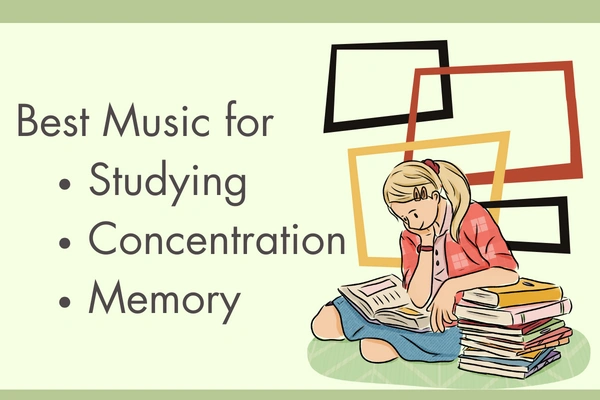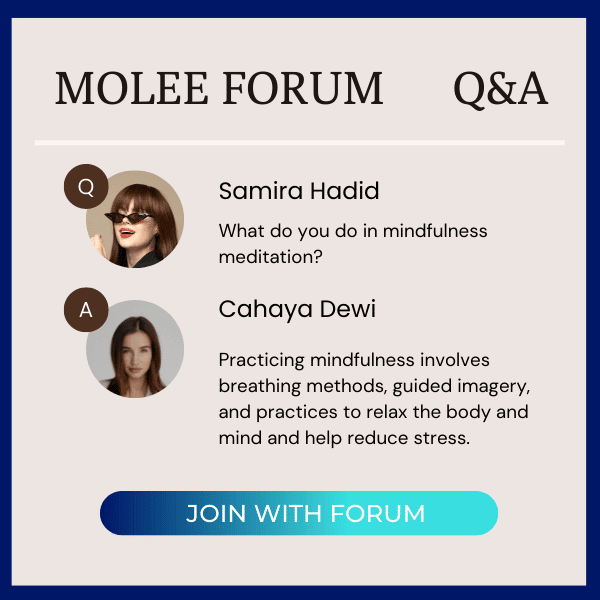Table of Contents
- The Connection Between Music and Memory
- Sounds That Are Best for Studying: From Classical to Nature Sounds
- Studying Music Can Put Your Brain in the Right Frame of Mind
- Scientifically Best Music for Studying
- Comparative Studies on the 5 Most Popular Genres
- Music for Specific Study Needs
- Top Artists for Studious Listeners
- Making the Most of Your Study Sessions with Music
- Final Thoughts
- FAQs about Music for Studying, Concentration, and Memory
- What is the best music for studying and remembering?
- Which music helps you concentrate better?
- Does music help you study and memorize?
- Which songs are better while studying?
- Is LOFI or classical music better for studying?
- What is the best music for ADHD focus?
- Is it OK to listen to LOFI?
- What are the disadvantages of LOFI?
- What does Lofi stand for?
You know, as a student or anyone neck-deep in work, there’s a certain magic that happens when you slip on those headphones, press play, and get lost in the world of melodies and beats. Suddenly, hours fly by, pages fill up, and before you know it, you’re on a roll!
But have you ever wondered why some tunes make Pythagoras’ theorem a tad more bearable or make Dostoevsky’s writings flow easier?
Well, friend, you’ve hit the right spot. Dive in with me as we embark on an exploration into the harmony between our brainwaves and beats, and unravel the science and soul behind the best music for studying, concentration, and memory.
Whether you’re a die-hard Beethoven fan, an ambient music aficionado, or someone hunting for that perfect playlist to accompany your next cram session, let’s journey together through the rhythm of cognition and find out how to make every study session hit the right note.
The Connection Between Music and Memory
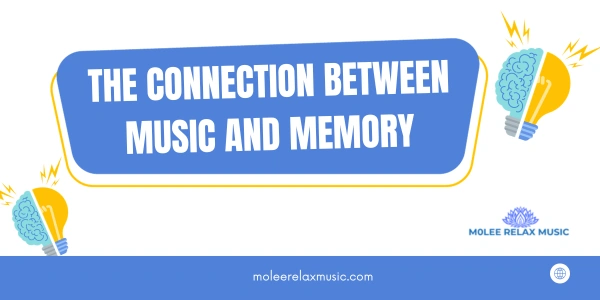
Ah, memories. Think back to that moment when you first rode a bike or that summer BBQ with family. Chances are, there’s a tune attached to those memories.
Music has a sneaky way of intertwining with our most cherished moments.
But why is that?
Neural Pathways and Melodies:
Music activates various parts of our brain, including the hippocampus, which is central to memory storage. Listening to music creates and strengthens neural pathways, leading to enhanced recall.
Emotional Resonance:
Ever noticed how hearing “that song” from high school instantly transports you back in time? That’s because music often connects with our emotions, making memories more vivid and easier to access.
Memory Anchoring:
Remember those mnemonic songs from childhood to remember the order of the planets or the multiplication table. Music can act as an anchor, providing a framework for information storage and retrieval.
Sounds That Are Best for Studying: From Classical to Nature Sounds
As you’re diving into your studies, the auditory background can be a game-changer. Let’s break down the spectrum of sounds that complement different study needs:
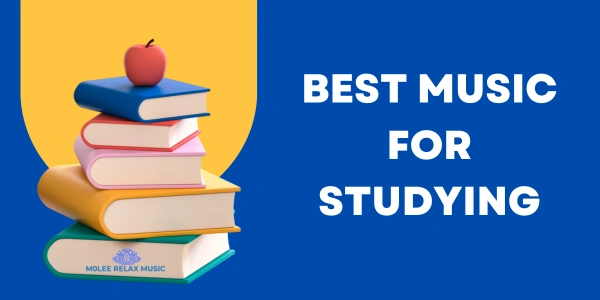
Classical Melodies:
Ah, the classics! Mozart, Bach, and Beethoven. Many students swear by the soothing strains of classical music to assist in abstract thinking and problem-solving.It’s not just the placebo effect; there’s a theory called the “Mozart Effect” suggesting classical tunes can boost IQ temporarily!
Nature Sounds:
The gentle rustle of leaves, a babbling brook, or the distant call of a bird. Nature sounds provide a calming backdrop, minimizing distractions and promoting sustained concentration. These sounds are excellent for deep reading or meditative thinking.
White Noise:
This is for those who need a consistent auditory environment. White noise, with its even distribution of sound, masks disruptive sudden noises, ideal for those in bustling households or noisy neighborhoods.
Studying Music Can Put Your Brain in the Right Frame of Mind
Here’s the thing: Your brain is a bit like an orchestra, with different sections playing together in harmony. Studying music, when chosen correctly, can be the conductor guiding this orchestra.
Brainwave Sync:
Certain rhythms and beats can sync with our brainwaves. This synchronization, called “brainwave entertainment,” can lead to states of heightened focus and alertness.
Specific tempos can stimulate the brain to resonate in sync with that rhythm, potentially leading to higher states of focus and creativity.
Stress Reduction:
The right kind of music can reduce cortisol (the stress hormone) levels. Less stress means better concentration and a more receptive state for learning.
Setting the Mood:
Just as a pump-up playlist can gear you up for a workout, a well-curated study playlist can get you into the “study zone.” It mentally prepares you, signaling to your brain that it’s time to get down to business.
So, the next time you’re settling down for a study session, give a thought to the sounds accompanying you. They might just be the unsung heroes of your academic achievements!
Scientifically Best Music for Studying
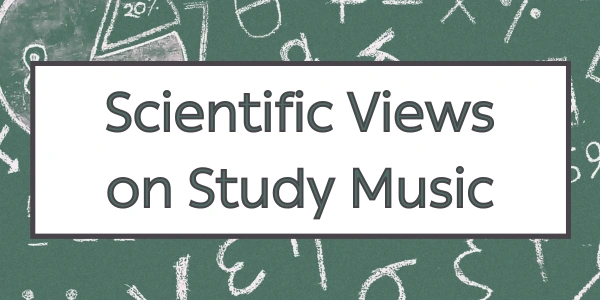
You know that delightful sensation when a tune taps into your consciousness, making everything in your surroundings fade into the background?
The world outside seems to blur, and all that remains is you, your task, and the music. But what’s the science behind this?
What makes certain tunes so efficient in boosting our concentration and productivity?
What Scientific Research Tells Us
Ever wondered why that Baroque playlist or those gentle sounds of rolling waves help you knuckle down and focus?
Let’s dip into the science of how music affects our brains.
Effects of music on cognitive function and memory recall
Studies indicate that music has the ability to improve our cognitive functions. Notable research from the University of California highlighted that students who listened to Mozart before a test performed better than those who didn’t.
This phenomenon, commonly known as the ‘Mozart effect,’ suggests that certain types of music can enhance our memory and cognitive abilities.
How certain frequencies and rhythms can enhance concentration
There’s a reason why rhythmic beats or constant frequencies, like white noise, help some people concentrate better. These consistent sounds mask disruptive background noises, providing a stable environment for the brain to focus.
Comparative Studies on the 5 Most Popular Genres
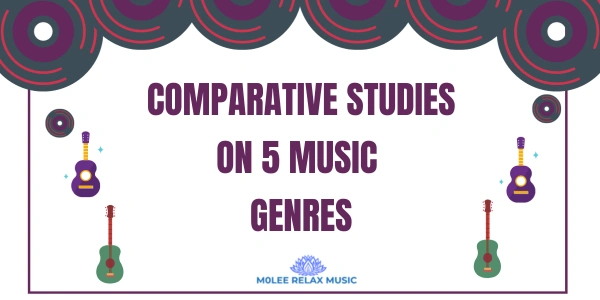
Each musical genre has its own charm, rhythm, and mood. But how do they stack up when it comes to studying?
1. Classical Music and its Mind-Boosting Effects for Mathematics
Researchers found that students who listened to classical music, especially compositions with a structured rhythm like those of Mozart or Bach, showed improved spatial-temporal skills, which are crucial for solving mathematical problems.
Benefits of classical music on mathematics:
- Enhanced mathematical problem-solving skills.
- Improved spatial-temporal reasoning.
- Reduced stress levels.
2. Nature Sounds and Their Role in Sustained Concentration
The serene sounds of nature, such as flowing water or chirping birds, aren’t just pleasing to the ear. These sounds can significantly increase concentration and satisfaction. Nature sounds mask harsher, more distracting noises, offering a calming backdrop for study.
How nature sounds helps you :
- Provides a calming environment.
- Masks distracting ambient noises.
- Creates a natural rhythm that helps focus.
3. Instrumental vs. Vocal: Distraction or Enhancement
We all have that favorite song with lyrics that we hum along to. But when it comes to studying, is it helping or hindering?
Instrumental music, without any vocal interference, is often lauded as the go-to for study sessions.
The reason? Lyrics can compete with the same processing resources that are needed for reading and writing. While some can study with lyrical music playing without any issue, others might find it counterproductive.
| Aspect | Instrumental Music | Vocal |
| Level of distractions | Minimal with no lyrics | Lyrics can be distracting |
| Best tasks | Reading, Writing, Mathematical Tasks | Light tasks and reviews |
| Potential pitfalls | Can be repetitive | Might invoke emotions |
Remember, the ideal study of music is as unique as you are. What works wonders for one might not for another. It’s all about trial, understanding, and finding that sweet spot where the melodies become a bridge to better concentration and learning.
4. The Phenomenon of Songs Without Lyrics
Ah, the simple beauty of a song without lyrics. Just pure instrumentals, reverberating notes, and the harmonies that take you on a journey.
Ever wondered why sometimes these non-vocal tracks feel just right, especially when you’re diving deep into a book or penning down thoughts?
How non-vocal tracks can aid in reading and writing tasks ?
Music without lyrics is akin to a canvas awaiting the artist’s touch. It provides a background, and a mood, without dictating the narrative. This allows your brain to dedicate its full resources to reading comprehension and the mechanics of writing, without getting sidetracked by lyrics that might trigger unrelated thoughts or emotions.
Key benefits of songs without lyrics:
- Enhances focus and cognitive processing.
- Avoids emotional variance induced by lyrics.
- Offers a neutral backdrop, amplifying comprehension and creativity.
5. Diving Deep into Brian Eno’s Music for Airports
Brian Eno’s “Music for Airports” isn’t just another ambient album. It’s a crafted experience, meant to soothe, calm, and engage the listener in a subtle yet profound way.
But why is it so often associated with deep concentration and study?
The science of ambient music and its effects on deep concentration:
Ambient music, especially tracks like those in “Music for Airports”, operates in the background. It doesn’t demand attention but rather fills the space with soundscapes that encourage introspection and focus. The consistent, gentle nature of ambient tracks minimizes sudden disruptions, facilitating a state of flow.
The impacts of ambient music on study:
- Reduces stress and anxiety.
- Promotes a state of calm attentiveness.
- Background soundscapes drown out potential distractions.
Here is the complete comparison on genres that we discussed above.
| Genre | Key Benefits | Notable Examples |
| Classical Music | – Enhances mathematical thinking – Boosts memory and recall | – Beethoven’s Symphony No.7 – Mozart’s Symphony No. 40 |
| Nature Sounds | – Increases concentration – Reduces stress and anxiety | – Ocean waves – Forest ambience with bird chirps |
| Vocal Music | – Establishes an emotional connection – Offers variability with added layer of sound – Can be motivational and uplifting | – Adele’s “Someone Like You” – Coldplay’s “Fix You” |
| Songs without Lyrics | – Minimizes distractions – Ideal for reading and writing tasks | – Explosions in the Sky: “Your Hand in Mine” – Yanni: “In the Morning Light” |
| Brian Eno’s Music for Airports | – Promotes deep concentration – Reduces stress and mental clutter | – Ambient 1 |
Read our article on best genres for great productivity and focus.
Music for Specific Study Needs
Every brain is unique. The quirks and intricacies of our neural pathways mean that while one genre of music might be the perfect study companion for one person, it may not work for another.
Recognizing your specific needs and curating a musical environment to support them can drastically optimize your study sessions.
Stay tuned as we delve into niche study needs, from ADHD-centric requirements to the perfect synergy between classical tunes and math problem-solving.
The world of studying music is vast, and understanding your personal needs within this expanse can truly elevate your learning journey.
Best Study Music for ADHD: Scientific Findings
ADHD, or Attention Deficit Hyperactivity Disorder, comes with its own set of challenges when it comes to concentrating on tasks. Interestingly, music has emerged as a powerful tool for many with ADHD.
- Research has shown that certain types of music, especially those with a consistent rhythm, can help individuals with ADHD maintain focus on a given task.
- The rhythmic patterns can serve as an auditory guide, keeping the brain engaged and reducing the tendency to wander.
Top Recommendations for ADHD
- Drumming tracks: The consistent beat can anchor attention.
- Ambient sounds: Gentle and non-intrusive, these can reduce external distractions.
- Nature sounds: The repetitive yet organic sounds can induce a calming effect.
Top Artists for Studious Listeners
Delving deep into the world of study music, it becomes evident that certain artists frequently top the charts for students around the world.
Some artists naturally fit the study mode with their rhythmic beats or soothing melodies, while others might surprise you with their inclusion on this list. Let’s explore which artists are favored by some of the brightest minds.
Artists that Students with High GPAs Listen To
The world of academia is as diverse as the musical tastes that accompany it. Interestingly, there’s a trend among top-performing students when it comes to their study playlists. Here’s a glimpse:
Tyler, the Creator: While his energetic rap tracks might seem more apt for a weekend jam, many high-achieving students find solace in the intricate production and rhythms Tyler brings. Songs like “See You Again” are a testament to his versatility, providing a mellow background perfect for intensive reading.
Taylor Swift: T-Swizzle might be known for her breakup ballads, but don’t underestimate the power of her softer tracks. “Safe & Sound” or “Exile” set a soothing ambiance, creating an environment conducive for study.
Ludovico Einaudi: This Italian pianist and composer crafts melodies that are both evocative and calming. Tracks like “Nuvole Bianche” are a favorite among students, transporting them to a serene space ideal for concentration.
Billie Eilish: With her haunting vocals and unique soundscapes, Billie’s tracks like “Ocean Eyes” or “When The Party’s Over” provide a background of subtle intensity, resonating with many learners.
Lo-Fi Girl (previously ChilledCow): The ever-famous YouTube channel, now turned artist, specializes in creating hours-long mixes of lo-fi beats, perfect for extended study sessions. Its consistent tempo and lack of intrusive lyrics make it a go-to for many.
Hans Zimmer: Known for his epic film scores, Zimmer’s music is both motivating and intense. Tracks like “Time” from Inception or “Cornfield Chase” from Interstellar offer students a sweeping backdrop to their studies.
It’s fascinating to observe the varied artists and genres that top students gravitate towards. Music is subjective, and what works for one may not work for another.
Yet, there’s no denying the collective appreciation for these artists among those with high GPAs. The blend of rhythms, melodies, and lyrics seems to strike the right chord for optimum academic performance.
Making the Most of Your Study Sessions with Music
Tapping into the potential of music to amplify your study sessions can be a game-changer. It’s not just about hitting play on a random playlist.It’s about curating the perfect auditory experience that aligns with your study goals.
Dive into these tested strategies to leverage the power of music for maximum concentration.
How to Use Music to Boost Concentration
- Maintaining Optimal Volume
Background music should remain in the background. If you find yourself singing along or tapping your foot too much, it might be time to dial it down a notch.
| Task | Recommended Volume Level |
| Reading and Writing | Low to Medium |
| Mathematics and Problem Solving | Medium |
| Memorizing Facts | Low |
2. Planning Your Playlist Strategically
- Duration Matters: Start with tracks that are 25-30 minutes long – roughly the duration of a focused study session.
- Variety is Key: Change genres or switch between instrumental and lyrical songs to prevent auditory monotony.
- Know Your Tasks: Tailor your playlist to the type of study task. E.g., complex calculations might benefit from instrumental tracks without lyrics.
3. Scheduling Frequent Breaks
- The Pomodoro Technique: Study for 25 minutes and then take a 5-minute break. Use an upbeat song during breaks to recharge.
- 2-Hour Rule: After two hours of continuous studying, take a longer break of 15-20 minutes.
4. Prioritizing Studying Music
- Quality Over Quantity: It’s better to have a few well-curated playlists than numerous random ones.
- Test and Iterate: If a certain track or genre distracts you, don’t hesitate to remove it from your list.
Final Thoughts
In the harmonious dance between melodies and the mind, music emerges as a potent ally in our academic pursuits. From the resonant chords of classical compositions to the gentle whisper of nature sounds, the right soundtrack can transform a mundane study session into an orchestration of focus and memory recall.
But remember, it’s not just about the tunes; it’s about understanding how they sync with our cognitive rhythms. As you embrace this symphonic approach to studying, may every note steer you closer to your goals and every beat resonate with the joys of learning.
Dive into the vast ocean of music, and let it guide you through the pages of knowledge.
FAQs about Music for Studying, Concentration, and Memory
What is the best music for studying and remembering?
The best music for studying and remembering is often instrumental, such as classical or ambient tracks, that promotes focus without distraction.
Which music helps you concentrate better?
Classical, ambient, and nature sounds are genres known to enhance concentration.
Does music help you study and memorize?
Yes, music can aid study sessions by improving concentration and enhancing memory recall, especially when it’s non-distracting.
Which songs are better while studying?
Instrumental songs, classical music, and ambient tracks are often recommended for studying.
Is LOFI or classical music better for studying?
Both LOFI and classical music have their merits; while classical tunes can enhance cognitive performance, LOFI offers a consistent, relaxing backdrop.
What is the best music for ADHD focus?
For ADHD focus, rhythmic instrumental tracks or certain types of classical music can be beneficial.
Is it OK to listen to LOFI?
Yes, listening to LOFI is fine; it offers a mellow, continuous beat that many find conducive for focus and relaxation.
What are the disadvantages of LOFI?
The disadvantages of LOFI might include its repetitive nature, which may not appeal to everyone, or potential overuse leading to diminishing returns in concentration.
What does Lofi stand for?
LOFI stands for “low fidelity,” referring to a music style that sounds more raw or contains intentional imperfections.


